Advancing Gender Equality in Nigeria Through Women’s Empowerment Groups
Written by Chizoba Onyechi, Senior Program Officer for Family Planning; Shittu Abdu-Aguye, Senior Deputy Program Director for Integrated Social and Behavior Change and Family Planning, Breakthrough ACTION-Nigeria; and Valentine Edoziem, Program Officer for Documentation and Knowledge Management
Celebrated globally every March 8, International Women’s Day recognizes the wide-ranging achievements and contributions of women around the world. This year’s theme—#BreakTheBias—invites all of us to do our part to foster a more gender transformative world where bias, stereotypes, and discrimination are replaced with diversity, equity, and inclusion.
At Breakthrough ACTION, building a more gender-equal world is not something we contemplate once a year; it is something we do—every day. One of many examples is Breakthrough ACTION-Nigeria’s work with women’s empowerment groups.
Despite global efforts to advance gender equality, Breakthrough ACTION sees through our work that women around the world continue to experience gender bias, harmful stereotyping, and discrimination. Gender inequality manifests itself in restrictive gender norms and roles that continue to limit women’s agency and their ability to make decisions and act on those decisions, especially concerning family planning, pregnancy, childbirth, or maternal and child health care.
Within the family, women can experience limited agency because of harmful gender norms and power dynamics that restrict access to the resources necessary to seek and access healthcare services. Outside the family, harmful gender norms and power dynamics discourage women from adopting a particular health behavior. For instance, in Nigeria, a woman who chooses to give birth at a hospital is seen as weak. To avoid being labeled weak, some women choose to deliver their babies at home without skilled birth attendants. Similarly, peer pressure and social norms can also prevent women from seeking care for their children and themselves when they are sick.
To create opportunities for women in local and rural communities across five Nigerian states—Bauchi, Sokoto, Kebbi, Ebonyi, and Federal Capital Territory—to #BreakTheBias, Breakthrough ACTION-Nigeria has been supporting the creation and functioning of women’s empowerment groups. These groups, also known as Hasken Mata (Women’s Light), bring together 15–25 women of childbearing age with the objective of creating a safe space where they can learn about and support each other to practice priority behaviors involving reproductive, maternal, newborn, and child health and nutrition (RMNCHN) s, engage in income-generating activities, and build skills to enhance contributions to their families and communities.
Women supporting families with basic needs significantly improve the husband-and-wife relationship hence reducing the number of marital cases in our courts.
~ Iliya Jinkiri, Ward Development Committee Chairman, Dott Ward
Each women’s empowerment group is guided by a community facilitator who provides supervision and monitoring to guarantee the group’s stability as it moves toward self-governance. The group uses a training manual that includes information on group rules and norms, contribution criteria, skill-building opportunities, and other guidelines for the group’s operations. Based on the rules of these women’s empowerment groups, members make weekly payments to a variety of agreed-upon funds that include weekly savings, interest on loans, social and emergency funds, and fines for breaking group rules. In establishing the operations of the women’s empowerment groups, Breakthrough ACTION-Nigeria gave consideration to the cultural, religious, and socio-political context in each of the five states. The project routinely monitors operations of the women’s empowerment groups using tools such as data collection forms to collect both quantitative and qualitative data.
Since September 2019, the number of women’s empowerment groups supported by Breakthrough ACTION-Nigeria has grown from six to 40 across three of the intervention states. Through weekly meetings and structured health conversations, 100% of members are now able to recall key RMNCHN messages and describe how they have been able to translate these messages to health behaviors in their families. For instance, some of them now practice early and exclusive breastfeeding, adopt family planning methods, ensure full immunization for their children, and take extra care to prepare nutritious meals in their homes.
The benefits of these groups extend beyond health. Through weekly contributions, the groups have raised over $12,840. These funds have enabled group members to improve their livelihoods and the family’s well-being; some have started micro-business ventures to sell their own crops or other food items, while others used the funds to enhance their existing businesses. Some members have reported improved spousal communication and playing a bigger role in household decision making. Members also took the initiative to collectively developed Hasken Mata theme songs that can help them and others to remember and practice healthy behaviors. All these changes have contributed to the women’s improved livelihoods, empowering them to #BreakTheBias.
We have achieved a lot in joining the group, we have learned about health behaviors, and we can also sensitize other people in the community about their health. This cycle, I was only able to manage one [share], but with the benefit now and because I now grow my business, I will be able to join the new cycle with ten [shares].
~ Shafa’atu Adamu, Member, Alherin mata Money Counter
Breakthrough ACTION-Nigeria’s work continues to provide evidence that creating a safe environment for women to express themselves and their abilities can help them #BreakTheBias that holds them back. With improved health knowledge, enhanced life skills, established income, and strong networks, group members can be confident and financially-empowered decision makers in their families and communities. For some of the members, their newfound confidence has also enabled them to lead meaningful conversations with their spouses. All these accomplishments were once thought impossible by people in these communities, including women themselves. Inspired by a shared vision of a gender-equal world, Breakthrough ACTION-Nigeria will continue to support the replication and expansion scale-up of these interventions across other states to further advance gender equality.
We hope you took time to mark International Women’s Day and that our story encouraged you to continue finding new ways to #BreakTheBias.

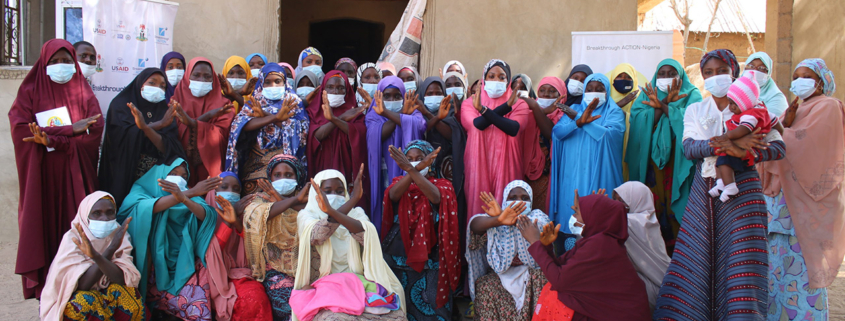 Breakthrough ACTION
Breakthrough ACTION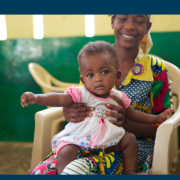 Sara Holbak/VectorWorks/Photoshare
Sara Holbak/VectorWorks/Photoshare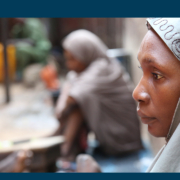
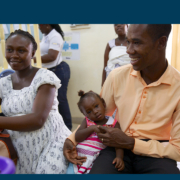 Sarah Hoibak/VectorWorks/Photoshare
Sarah Hoibak/VectorWorks/Photoshare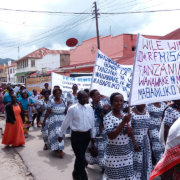 Rebekah Munnikhuysen/US Peace Corps/Photoshare
Rebekah Munnikhuysen/US Peace Corps/Photoshare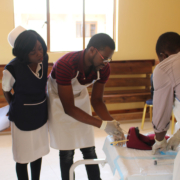
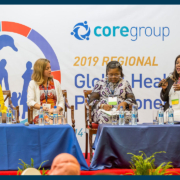 2019 CORE Group Global Health Practitioner Conference
2019 CORE Group Global Health Practitioner Conference